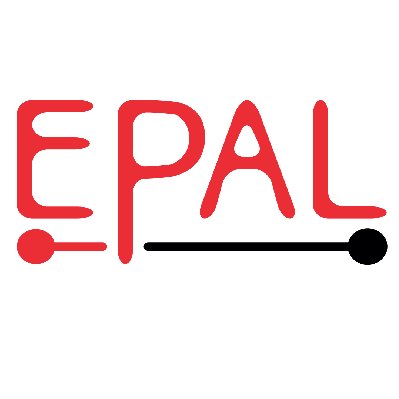Call for papers > Call for Papers
Echanger Pour Apprendre en Ligne - Edition 2020 - Campus du Mans
EPAL 2020 will take place at Le Mans from 3 to 5 June 2020. This change of venue, agreed with the Grenoble team ( (Lidilem, Université Grenoble Alpes) which had organised the previous editions, provides an opportunity to take stock of past and present research, and to reflect on future directions. As can be seen from the composition of the conference committee, which brings together specialists in the fields of linguistics, didactics, education sciences, information and communication sciences, and computing (especially technology-enhanced learning and human-computer interactions), we have adopted the resolutely multidisciplinary perspective needed to ensure research into teaching and learning centred round online exchanges continues moving forward.
The theme we have chosen for this edition of EPAL is quality. As well as being a highly topical issue in education and training, due to the current context of competition between training offers, there is much to be learned by examining the concept of quality from an epistemological point of view, and from different yet complementary perspectives.
Online exchanges provide a useful starting point for doing this. How can we assess, define and maybe even measure the quality of online exchanges orchestrated by data-access systems, by scaffolding methods, and by tools for validating learning and training pathways? What criteria should be used? In what ways can online and face-to-face modes, or synchronous and asynchronous communication, for example, be compared? What role does the blending of courses play?
Bringing together studies centred round the notion of quality will allow us to take a closer look at the way we approach research. Thus, this edition of EPAL provides a welcome opportunity to reflect upon our field in order to identify what makes our research scientific.
Research in the humanities is sometimes accused of having no scientific basis, due to the non-reproducibility of studies, the prevalence of self-report data-collection methods and its excessively qualitative dimension. As a result, it has often been reproached for a supposed lack of quality. However, numerous arguments can be put forward to counter these sometimes-hasty judgments (which are often motivated by an eminently criticisable view of science, including of the so-called hard sciences).
In fact, the qualitative research methods developed in the humanities are crucial to our field, as they enable us to analyse learning and training situations in detail. In terms of methodology, action-research and intervention-research reveal the researcher’s diligence and commitment to clarity and impartiality. The clinical orientation of numerous studies (biographical approach, analysis of social representations and practices, participant observation) can also lead to fruitful transfers.
After 20 years of research into online exchanges, computer-mediated learning environments and blended course design, we feel it is worthwhile looking back on what has been accomplished. The seventh edition of EPAL is an ideal occasion for this reflection.
The notion of quality not only applies to the need to be scientific, it is also anchored in our social and professional context. Indeed, the quality approach to training, the creation of quality labels (e.g., Qualité FLe), approaches to course design (design and validation methodologies), and changes in evaluation methods (skills approach, curriculum approach) all attest to the rise and ubiquity of the search for quality (Baye & Demeuse, 2008, Figari & Tourmen, 2006).
This is especially true for research, where there has long been a focus on ensuring quality. For example, France’s “Guide Expérimental pour la Qualité en Recherche” (Experimental Guide for Quality in Research) is already more than two decades old (French “Quality in Research” working group, 1997).
Further evidence for this can be seen in the keenness with which higher education establishments are embracing the European Commission’s “Human Resources Strategy for Researchers” (HSR4S).
In order to guide potential contributors, we have drawn up a non-exhaustive list of research issues that can be examined from a quality perspective:
• Multimodality (diversity and complementarity of communication situations and tools within a single course)
• Temporality (the time dimension of exchanges)
• Scaffolding (roles and functions of teachers, monitoring and intervention methods, types of relations, etc.)
• Creativity (collective online writing, creative programming, etc.)
• (Interpersonal) interactions and interactivity (see HCI)
• Mediation and mediatization (e.g., digital mediation tools) within courses
• Critical thinking, reflexivity, complexity
• Learning outcomes
• Continuity of practices and actions (uses, appropriation)
Studies may also adopt a thematic focus, for example:
• Types of interaction (focusing on the structuring of exchanges)
• Digital literacy (focusing on personal learning environments, scaffolding practices)
• Course/programme design (focusing on the actors involved, course components, the granularity of content and activities, forms of interaction, platform communication areas and functions)
• Learning environment design (focusing on the structure of learning environments, the development of educational software, management, validation of user profiles)
• A critical look at “methodological approaches/analysis tools” and certain concepts used in the field (exchanges, practices, mechanisms, uses, environments, etc.)
By exploring a variety of research objects and themes from different perspectives, EPAL will throw light onto the issue of quality, via the results presented and the convergence and/or complementarity of the methodologies used.
You can download the CFP.
| Online user: 16 | Privacy |

|

